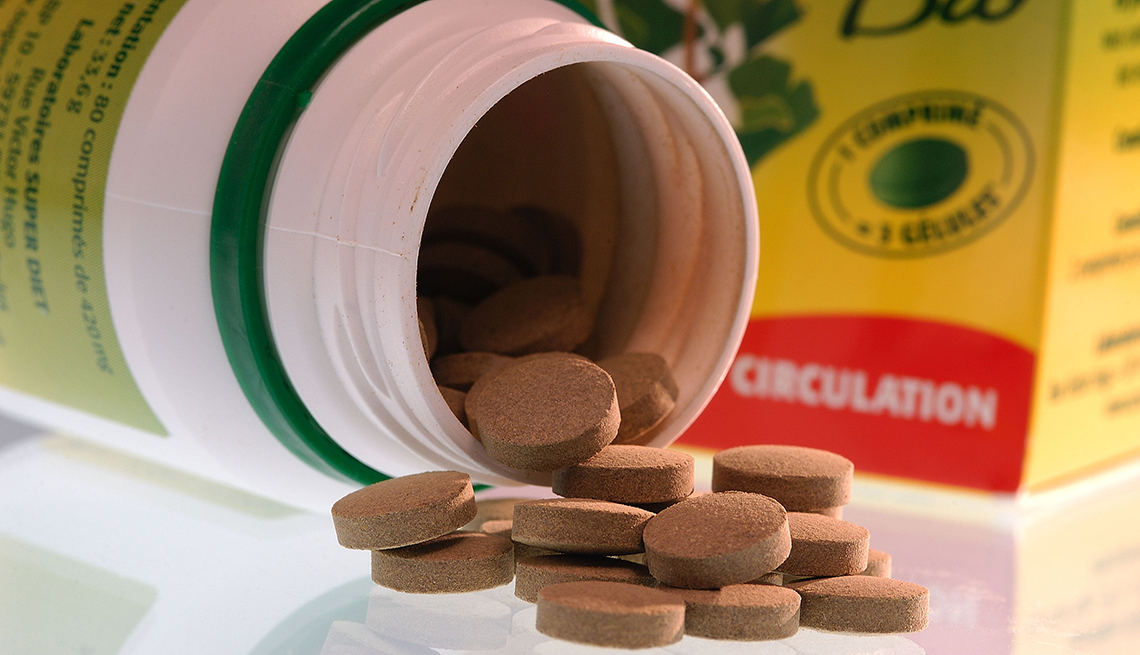AARP Hearing Center
It’s common knowledge that prescription drugs can cause side effects — TV ads don’t let you forget that. And plenty of people know that taking over-the-counter medication can lead to unwanted symptoms (think of how some antihistamines can make you sleepy).
When it comes to dietary supplements, however, many consumers are unaware that their vial of vitamins or bottle of herbs and other botanicals (think echinacea and ginkgo biloba) could come with risks. And a big reason boils down to how they’re sold — “as openly and as freely as food,” says Pieter Cohen, M.D., an internist at Cambridge Health Alliance and an associate professor of medicine at Harvard Medical School who studies supplement safety.
“So just like you can buy some broccoli or a can of tomato sauce, you can just buy whatever sort of supplements or botanicals or probiotics you want in the store,” he says. And this helps to create a "false impression" that the powders, pills and capsules can’t cause harm.
But a 2015 study, published in the New England Journal of Medicine, found that about 23,000 people wind up in the emergency room each year due to adverse events caused by dietary supplements. Reactions the researchers identified ranged from chest pain and heart palpitations to dizziness and vomiting, and adults 65 and older were more likely to be hospitalized because of them.
Rashes, shortness of breath, diarrhea, severe joint or muscle pain, slurred speech and blood in the urine are other possible adverse events that can result from supplement use, according to the U.S. Food and Drug Administration (FDA). These symptoms can vary from less serious to life-threatening.
Did You Know?
Fresh fruits and veggies are packed with vitamins and minerals, but manufacturers also add them to everyday foods, like breakfast cereals and beverages. So you may be getting more nutrients than you think through your diet, and taking more than you need raises the risk of side effects.
Source: National Institutes of Health Office of Dietary Supplements
How supplements can cause side effects
How can a vitamin or plant product cause adverse reactions typically associated with powerful drugs? Reasons run the gamut, experts say.








































































